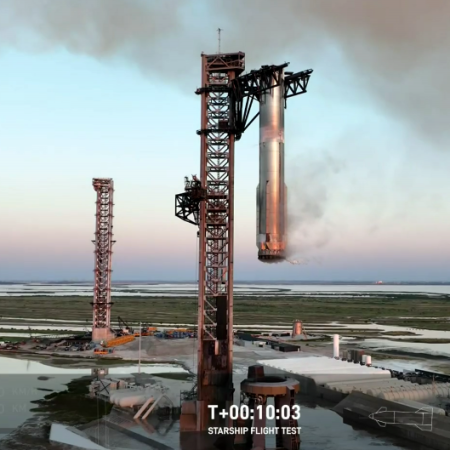SpaceX and Rocket Lab complete two launches overnight
Though one SpaceX launch early last night had a launch abort, both SpaceX and Rocket Lab completed additional launches later in the evening.
First, SpaceX completed its second Bandwagon in which 30 payloads were sent to mid-inclination orbits, its Falcon 9 rocket lifting off from Vandenberg in California. The first stage flew its twenty-first flight, landing successfully back its landing site at Vandenberg. The two fairings completed their 14th and 18th flights.
Next, Rocket Lab completed its sixth launch of sixteen for the commercial satellite company Synspective, its Electron rocket lifting off from one of its two launchpads in New Zealand. This was the 14th successful launch for Rocket Lab in 2024, a significant increase from the nine and eight launches it flew in 2022 and 2023.
The leaders in the 2024 launch race:
133 SpaceX
64 China
16 Russia
14 Rocket Lab
American private enterprise now leads the rest of the world combined in successful launches 153 to 96, while SpaceX by itself leads the entire world, including American companies, 133 to 116.
Though one SpaceX launch early last night had a launch abort, both SpaceX and Rocket Lab completed additional launches later in the evening.
First, SpaceX completed its second Bandwagon in which 30 payloads were sent to mid-inclination orbits, its Falcon 9 rocket lifting off from Vandenberg in California. The first stage flew its twenty-first flight, landing successfully back its landing site at Vandenberg. The two fairings completed their 14th and 18th flights.
Next, Rocket Lab completed its sixth launch of sixteen for the commercial satellite company Synspective, its Electron rocket lifting off from one of its two launchpads in New Zealand. This was the 14th successful launch for Rocket Lab in 2024, a significant increase from the nine and eight launches it flew in 2022 and 2023.
The leaders in the 2024 launch race:
133 SpaceX
64 China
16 Russia
14 Rocket Lab
American private enterprise now leads the rest of the world combined in successful launches 153 to 96, while SpaceX by itself leads the entire world, including American companies, 133 to 116.


